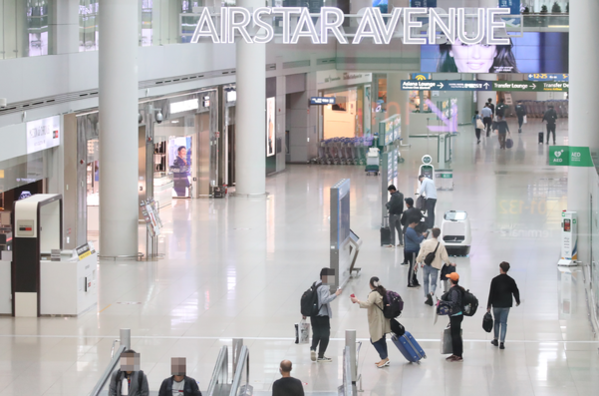Input 2021.01.05 16:28 | Revision 2021.01.05 16:41
Excessive patent abuse for years by the government…
Post-corona era “need drastic cleanup”

There is also a reaction that it was a planned crisis. It is pointed out that the side effects of the government’s indiscriminate expansion of new duty-free businesses in recent years have been revealed in the wake of the Corona 19 incident. There are criticisms that the chaebol groups are playing a zero-sum game saying that they will steal duty-free shops from each other, and that the government’s industrial policy mass-produced zombie companies and eroded the competitiveness of other competitive companies.
According to the Korea Duty Free Shop Association on the 5th, last year (January-November) domestic duty-free store sales amounted to 14.32 trillion won, down 42% from the same period last year. Profitability also worsened. As of the end of September last year, the accumulated deficit of’Big 4’duty free stores such as Lotte, Shilla, Shinsegae, and Hyundai was about 340 billion won.
In April of last year, the government announced two support measures for the duty-free industry. It allowed domestic customs clearance sales for’stock duty-free goods’ that had already entered the bonded warehouse, and overseas sales through third-party return for’preliminary inventory duty-free goods’ ordered in advance by duty-free businesses.
In particular, third-party returns were mainly used by Chinese bag dealers. Bottari, registered as a wholesale corporation in China, was able to receive duty-free goods they wanted without entering Korea. An industry insider said, “However, this system played a role in the coronavirus outbreak,” he said. “It accounted for 30% of sales in the second half of last year.”
◇ Government’third party return’ ends… “Unusual system operation impossible”
The government ended this system at the end of last year. An official from the Korea Customs Service said, “We cannot continue to operate an abnormal system,” and said, “After the corona crisis, duty-free shops should have taken self-response by reducing their own orders.”
Instead, the government has created a’multiple shipment through export stamp’ system that allows foreigners who have entered the country to send goods overseas several times. However, the industry points out that there is a limitation in that only foreigners who have entered Korea can send overseas goods.
There is also the hassle of having to register with customs in advance. In order to use the export stamp, a registration declaration procedure leading to’foreigners-duty-free shop-customs’ is required. However, even a registration system has not yet been created.
In addition, foreigners who ship duty-free goods through the export delivery book must leave the country within two months after the initial shipment. However, the duty-free shop is required to manage such foreigners’ departure confirmation. A duty-free shop official said, “I wonder if the duty-free shop, which is a corporation, can check the identity of foreigners and continue tracking and managing them,” and said, “It is unclear how to impose sanctions when foreigners change their departure schedule.

There is also a voice saying that it will burst. Duty-free shops were once considered’gooses that lay golden eggs’. This is because duty-free shops are recognized as the only breakthrough that can bring both stable growth and profits in the stagnant retail industry. Since then, the government has greatly eased the standard for duty-free shop patents, and the number of duty-free shops in downtown Seoul from six in 2015 increased to 11 as of this year. In addition, the bleeding competition intensified as the government allowed up to two duty-free shops in the arrival hall.
It is pointed out that this year, competition for passenger fees (fees paid to travel agencies to attract customers), a so-called “rebate,” in order to attract Chinese package dealers, which account for 80% of all customers, will be overheated. This is because the duty-free industry is expected to significantly raise fees, which were 10-20% of existing sales, to survive. Immediately after the Hyundai Department Store duty-free shop opened in 2019, 28-32% of the customer service fee was paid to attract the package. An official in the industry said, “The duty-free shop used to be a goose that lays golden eggs, but now it has become like Gyeruk.
Lee Eun-hee, professor of consumer science at Inha University, said, “Duty-free shops that rely on travelers are an industry that is sensitive to external variables.” “It is time to start the process of organizing the overlooked parts.”
